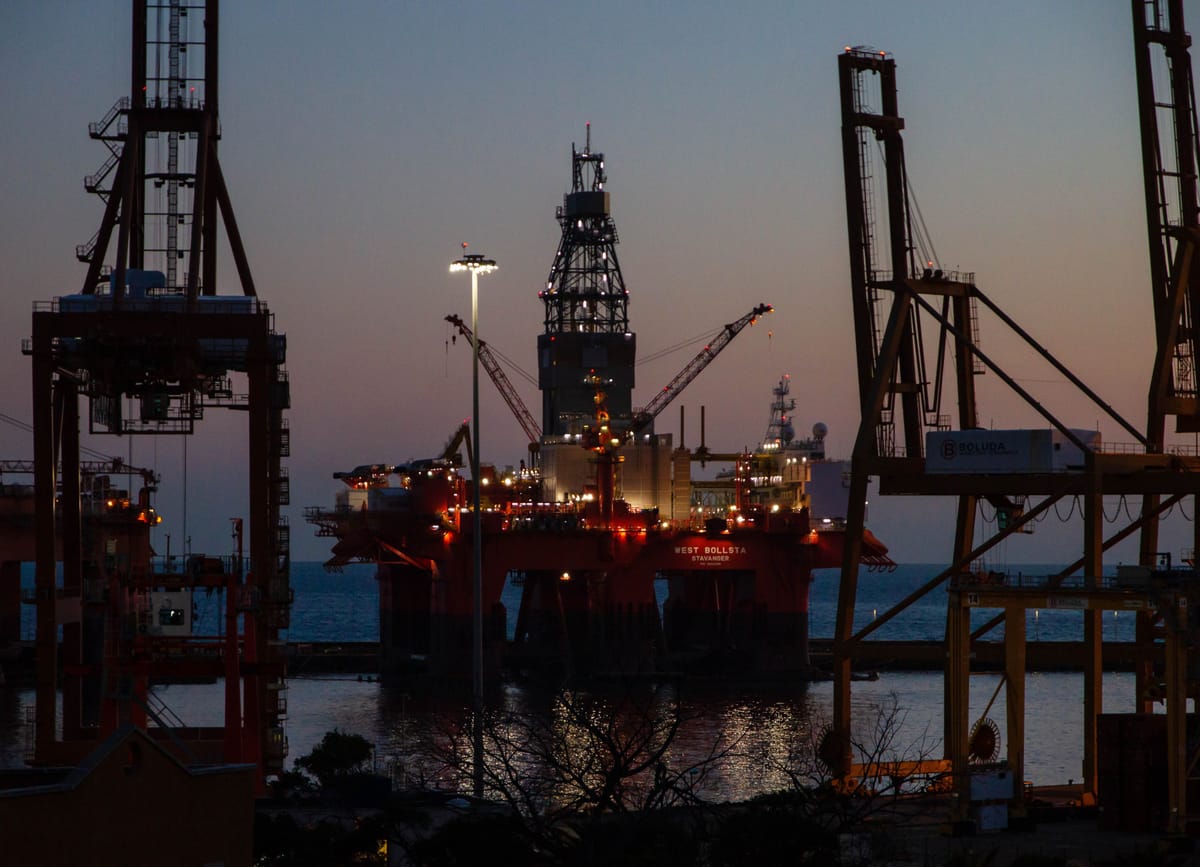Dividend notes: cash producers - BP, BDEV, LLOY (03/05/23)
I review the latest updates from UK dividend shares BP, Lloyds and Barratt Developments.

Solid numbers from three popular big caps today, but each recognises some uncertainty in the outlook ahead.
This is a review of the latest results from UK dividend shares that I don't own but which are in my investable universe and may appear in my screening results.
Dividend notes is a new format I'm experimenting with, so any feedback would be particularly welcome - please feel free to comment below or contact me directly.
Companies covered:
(click links to scroll to the relevant section)
- BP (LON:BP) - Q1 results show this cash gusher remains an impressive fossil fuel business. However, the valuation looks up with events to me on a cyclical view. I also fear that charges of cakeism and greenwashing may be deserved.
- Barratt Developments (LON:BDEV) - a solid update from this housebuilder, showing the expected recovery in sales rates since the start of the year. Good balance sheet and one of my top sector picks.
- Lloyds Banking Group (LON:LLOY) - a solid set of numbers with some wiggle room for later in the year. 6% dividend yield looks decent value and fairly low risk, in my view.
BP (BP)
underlying replacement cost profit* for the first quarter was $5.0 billion, compared with $6.2 billion for the same period of 2022
BP says it is "performing while transforming" itself into an integrated energy company (IEC) with a presence in the green transition.
Many market participants are sceptical about BP's green credentials. I fear the firm's Q1 results may not help this perception. The main operational highlights flagged up in this week's statement were:
- Startup of Mad Dog Phase 2 - a $9bn oil project in the Gulf of Mexico
- Final stages of commissioning KGD6-MJ deepwater gas field offshore India
- Forming a joint venture with ADNOC "focused on gas development"
- Concept selection for Kaskida oil field in the Gulf of Mexico
- Evaluating Greater Tortue Ahmeyim (GTA) phase 2 - an LNG project offshore Africa.
Progress on projects that don't involve producing fossil fuels was limited to the acquisition of US motorway services chain TravelCenters of America, and involvement in some hydrogen and carbon capture and storage (CCS) projects in the UK and Spain.
Despite being largely unproven, CCS is popular with fossil fuel producers because it offers the propect of cakeism – i.e. being able to continue using fossil fuels while negating emissions. Critics suggest greenwashing and – on balance – I fear they may be correct.
Q1 2022 financial highlights: plenty more of the good stuff here. While profit and cash generation are down from last year's record levels, they remain considerable:
- Underlying replacement cost (RC) profit: $5.0bn (Q4 2022: $4.8bn)
- Surplus cash flow: $2.3bn (Q4 2022: $5.0bn)
- Share buybacks: $2.5bn (Q4 2022: $3.2bn)
- Net debt: $21.2bn (Q4 2022: $21.4bn)
- Dividend (Q1): 6.61 cents per share (unchanged from Q4)
Outlook: BP expects "oil prices to remain elevated" following the recent OPEC+ decision to cut production. Gas/LNG prices are also expected to be firm as Chinese demand recovers and European buyers restock ahead of winter.
Broker consensus forecasts suggest adjusted earnings could fall by around 30% to $1.04 per share this year, with dividend growth of 10%.
These estimates price BP shares on six times 2023 forecast earnings, with a 4.4% dividend yield.
My view: BP and its rivals are continuing to mint cash as they benefit from strong energy prices and the financial discipline of recent years. The group's balance sheet looks in good shape to me – stronger than for many years.
However, profits are still close to record highs and I think it's worth remembering that this is a cyclical, low-growth business. At least, it always has been.
At current levels, BP shares are trading on more than ten times 10-year average earnings (CAPE), compared to a long-term average CAPE of about seven.
In my opinion, BP's CAPE ratio gives us a more accurate guide to the valuation of the business. I don't think the shares are especially cheap on a cyclical view, although I accept that BP may continue to perform well for a while yet.
Barratt Developments (BDEV)
we expect to deliver full year adjusted profit before tax in line with current market expectations
Just a short note on Barratt Developments to complement my dividend notes on Persimmon and Taylor Wimpey last week.
Barratt is one of my top picks in this sector and today's trading update confirms the company has performed well this year.
Reservation rates have recovered from 0.30 net private reservations per active outlet per average week at the end of last year, to a rate of 0.65 across the period 1 January - 23 April.
This compares to an exceptional sales rate of 0.93 during the same period last year.
Barratt is fully sold for the year to 30 June and expects financial results to be in line with consensus forecasts.
Management expect to report a £900m net cash balance at year end and confirm the group's debt facilities have not been used during the current financial year.
Broker estimates I can see suggest earnings of 66p per share for FY23, with a dividend of 33p. That prices the stock on eight times forecast earnings, with a 6.5% yield.
My view: taking a cyclical view, as with BP above, Barratt is trading on around eight time 10-year average earnings and at around 1.1x tangible book value.
The shares aren't quite the bargain they were at the end of last year, but I think they look reasonably priced for income investors. I remain positive on a medium-term view and would be happy to buy or hold at current levels.
Lloyds Banking Group (LLOY)
Financial guidance maintained
Lloyds's first-quarter results were slightly better than expected, but the banking group opted to leave its full-year guidance unchanged.
My reading of this is that macroeconomic uncertainty remains a potential concern. By getting a strong set of numbers in the bank now but leaving guidance unchanged, Lloyds has a little more flexibility for the remainder of the year.
Having said that, today's numbers did not flag up any obvious concerns. Net income for the quarter was £4.7bn, 15% higher than during the same period last year.
This gain was driven a rise in net interest income, thanks to higher interest rates. However, net interest income of £3,535m was 3% lower than during the final quarter of 2022.
The bank's net interest margin of 3.22% was unchanged, but Lloyds is guiding for a full-year figure of "at least" 3.05%, perhaps suggesting that margins have peaked.
The company noted that mortgage margins are under pressure, as lenders compete for new business in a slowing market.
Customer deposits also fell slightly, presumably as customers moved their cash to take advantage of higher interest rates available elsewhere. Combatting this flow could also put pressure on Lloyds' NIM.
Bad debt charges rose to £243m during the period (Q1 2022: £177m) but were well below the £465m booked in Q4 last year. There does not yet seem to be any sign of credit quality problems.
Outlook: unchanged. Broker consensus estimates ahead of today suggested that Lloyds will reported earnings of 7.6p per share this year and pay a 2.8p dividend.
That's equivalent to a P/E of six and a 6% dividend yield.
My view: Lloyds is trading nearly 10% below its tangible net asset value of 49.6p and offers a well-supported 6% dividend yield.
As with NatWest and Barclays last week, I think Lloyds shares look reasonable value at current levels, despite the uncertain outlook.
Disclaimer: This is a personal blog and I am not a financial adviser. The information provided is for information and interest. Nothing I say should be construed as investing advice or recommendations. The investing approach I discuss relates to the system I use to manage my personal portfolio. It is not intended to be suitable for anyone else.
You should carry out your own research and make your own investing decisions. Investors who are not able to do this should seek qualified financial advice. Reasonable efforts are made to ensure that information provided is correct at the time of publication, but no guarantee is implied or provided. Information can change at any time and past articles are not updated.




